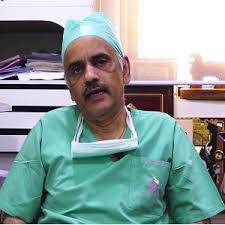What is an ABO-Incompatible Kidney Transplant, and how much does it cost in India?
An ABO-Incompatible Kidney Transplant allows a patient to receive a kidney from a living donor with a mismatched blood group — something that was once considered medically impossible. Through advanced desensitization therapy, the body’s immune system is conditioned to accept the new kidney, minimizing rejection.
What is an ABO-Incompatible Transplant, and how does it work?
An ABO-incompatible (ABOi) transplant is a kidney transplant where the donor’s blood type is not compatible with the recipient’s. Under normal conditions, this would cause the recipient’s immune system to attack the donor kidney, leading to rejection.
Thanks to desensitization therapies, the recipient’s body can now be prepared to tolerate the mismatched organ, allowing transplantation across incompatible blood groups.
How it works:
1. Pre-transplant desensitization lowers the level of anti-A or anti-B antibodies using:
- Plasmapheresis
- Rituximab (immunotherapy)
- Intravenous immunoglobulin (IVIG)
2. The recipient undergoes the transplant after antibodies reach an acceptable level.
3. Post-surgery, immunosuppressants help prevent rejection and maintain graft function.
ABOi transplants have shown excellent long-term outcomes in India when performed by experienced transplant teams.
Why is ABO-Incompatible Kidney Transplant needed?
ABOi transplants are necessary when the only available living donor has an incompatible blood type. In regions with long wait times for deceased donor organs, ABOi transplants offer a life-saving alternative for end-stage renal disease patients.
Indications for ABOi Transplant:
- No matched donor available in the family
- Patient cannot afford to wait for a cadaveric transplant
- Need for urgent transplantation due to declining kidney function
- Family member is a willing donor with mismatched blood group
- Refusal of paired exchange (swap) programs or no match found
Without ABOi options, many patients are left on lifelong dialysis or risk disease progression. This approach offers a second chance at life.
What types of ABO-Incompatible Transplants are performed in India?
India performs various types of ABO-incompatible kidney transplants, depending on patient-donor relationship, urgency, and protocol.
Common Types of ABOi Kidney Transplants:
|
Type |
Description |
|
Parent-to-child or spousal ABOi |
A close relative with incompatible blood group donates after desensitization |
|
Swap or paired ABOi transplant |
Incompatible donor-recipient pairs are matched with other similar pairs |
|
Unrelated ABOi transplant |
Non-blood relatives or altruistic donors, often subject to ethical review |
While live donor ABOi kidney transplants are most common, India also performs rare ABOi liver transplants — but this guide focuses on renal procedures.
What pre-transplant evaluations and desensitization steps are required, and what is the cost in India?
ABOi transplants require extensive immunological work-up and desensitization therapy before surgery. The goal is to reduce the body’s anti-ABO antibodies and make the recipient’s immune system less reactive to the donor organ.
Pre-Transplant Testing Includes:
|
Test |
Purpose |
Approximate Cost (USD) |
|
Blood Group & Cross-Match |
Verify donor-recipient compatibility |
$20 – $40 |
|
HLA Typing |
Identify matching genetic markers |
$150 – $200 |
|
Anti-A/B Antibody Titers |
Measure immune response to donor blood |
$100 – $150 (multiple times) |
|
Renal Function Panel, CBC, LFT |
Assess overall health |
$50 – $100 |
|
Viral Markers (HBV, HCV, HIV) |
Ensure both donor and recipient are infection-free |
$50 – $100 |
|
Chest X-Ray, ECG, 2D Echo |
Cardiac and respiratory evaluation |
$30 – $50 |
|
CT Renal Angiography (Donor) |
Map blood supply to donor’s kidneys |
$120 – $200 |
Desensitization Therapy Includes:
Plasmapheresis sessions: $200 – $300 each (typically 3–6 sessions)
Rituximab Injection: $700 – $1,000 per dose (1–2 doses)
IVIG Therapy: $800 – $1,200 total
Total Pre-Transplant Cost (India): $3,000 – $5,000
These steps are critical to ensure the safe success of the transplant, and Indian centers follow internationally accepted ABOi protocols.
What is the full treatment protocol for ABO-Incompatible Kidney Transplant in India?
India follows a systematic, evidence-based protocol for ABO-Incompatible kidney transplantation, focused on minimizing rejection risk and ensuring long-term graft survival.
Step-by-Step ABOi Treatment Protocol:
1. Donor & Recipient Evaluation:
- Blood group testing, antibody screening
- HLA typing and crossmatch
- Imaging studies and baseline blood tests
2. Desensitization Phase (2–3 weeks before transplant):
- Plasmapheresis sessions to lower anti-ABO antibodies
- Rituximab (anti-CD20 monoclonal antibody) injection to suppress B cells
- IVIG therapy to neutralize antibody rebound
- Immunosuppressive drugs started before transplant (e.g. tacrolimus, mycophenolate)
3. Surgery:
- Standard kidney transplant procedure under general anesthesia
- Graft kidney placed in lower abdomen
- Ureter connected to bladder
4. Postoperative Care:
- ICU monitoring for 24–48 hours
- Continued immunosuppression and monitoring
- Infection prevention protocols
- Regular kidney function and antibody level checks
5. Long-Term Follow-Up:
- Weekly to monthly monitoring for the first 6 months
- Gradual tapering of medication (based on kidney function)
- Routine health and lab reviews for life
This protocol enables safe, successful transplantation even across incompatible blood types — a medical breakthrough made routine in India.
What technologies and therapies are used in India for ABOi transplants?
India uses globally recognized therapies and devices for ABO-incompatible transplants, ensuring safety and success comparable to top international centers.
Key Technologies and Treatments:
|
Technology |
Function |
|
Plasmapheresis Machines |
Removes anti-ABO antibodies from the blood |
|
Immunoadsorption Columns |
Targets and eliminates specific antibodies |
|
Rituximab (anti-CD20) |
Destroys B-cells responsible for antibody production |
|
IVIG (Intravenous Immunoglobulin) |
Balances immune response and prevents antibody rebound |
|
Therapeutic Drug Monitoring |
Ensures immunosuppressive drug levels are safe and effective |
|
Ultrasound/Doppler Imaging |
Checks graft blood flow after surgery |
|
Biopsy Capability |
For rejection surveillance, if needed |
All therapies are FDA- and CE-approved, and used according to KDIGO (Kidney Disease: Improving Global Outcomes) transplant guidelines.
What is the full cost breakdown for ABO-Incompatible Transplant in India?
India offers affordable, fixed-cost transplant packages tailored for international patients. These include evaluation, surgery, desensitization, and follow-up.
Detailed Cost Breakdown:
|
Component |
Estimated Cost (USD) |
|
Pre-transplant evaluation |
$700 – $1,000 |
|
Plasmapheresis sessions (3–6) |
$600 – $1,500 |
|
Rituximab injections (1–2) |
$700 – $2,000 |
|
IVIG Therapy |
$800 – $1,200 |
|
Immunosuppressants (initial dose) |
$400 – $700 |
|
Kidney Transplant Surgery |
$6,000 – $8,000 |
|
ICU + Hospital Stay (10–14 days) |
$2,000 – $3,000 |
|
Post-op Monitoring & Follow-up |
$500 – $800 |
Total ABOi Transplant Package in India: $16,000 – $22,000
Additional expenses (flight, hotel, visa) are modest compared to savings versus Western countries. Healzone ensures no hidden costs and transparent billing.
Why is India a preferred destination for ABO-Incompatible transplants?
India has become a global leader in living donor kidney transplantation, particularly in ABO-incompatible surgeries, thanks to its clinical expertise, affordability, and modern infrastructure.
Why International Patients Choose India:
- Experienced transplant teams performing 2000+ cases annually
- Full access to plasmapheresis, IVIG, and biologic therapy
- NABH/JCI-accredited hospitals with dedicated transplant ICUs
- No long waiting times – donor surgeries are scheduled quickly
- Multilingual staff for Arabic, French, Russian, Swahili, and more
- All-inclusive pricing that is 70% lower than in the West
- Patients from Africa, Middle East, Southeast Asia, and Europe treated regularly
India combines clinical success with compassionate, culturally sensitive care, making it a reliable option for complex transplant cases.
Why choose Healzone to coordinate your ABO-Incompatible Kidney Transplant in India?
Healzone specializes in helping international patients access safe, timely, and affordable transplants in India, including complex cases like ABO-incompatible kidney transplants.
Navigating international care, transplant laws, cross-border travel, and post-op follow-up is overwhelming — Healzone takes care of it all.
Key Advantages of Choosing Healzone:
|
Service |
What It Means for You |
|
Medical report evaluation |
Get your lab reports and donor details reviewed in advance |
|
Hospital & doctor coordination |
Matched with top Indian transplant centers that offer ABO-incompatible transplant services |
|
Transparent cost estimates |
Pre-approved packages with no hidden charges |
|
Visa and documentation support |
Medical visa assistance and embassy letters provided |
|
Travel & accommodation help |
Airport pickup, hotel bookings, donor-patient transport logistics handled |
|
Multilingual support |
Coordinators fluent in Arabic, French, Russian, Swahili, and more |
|
Tele-follow-up |
Virtual care after you return to your home country |
Healzone acts as your personal healthcare concierge, ensuring a seamless journey from initial inquiry to post-transplant recovery.
What is the recovery timeline, risk, and long-term outlook after an ABO-Incompatible Kidney Transplant?
While ABO-incompatible transplants carry slightly higher risk, outcomes in India are increasingly comparable to ABO-compatible transplants, thanks to desensitization protocols and post-op care.
Recovery Timeline After ABOi Transplant:
|
Phase |
Timeframe |
Activities & Monitoring |
|
Hospital stay |
10–14 days |
ICU observation, graft function, infection monitoring |
|
First 1–2 months |
Intensive outpatient monitoring |
Blood tests 2–3x/week, dose adjustments |
|
3–6 months |
Stabilization phase |
Monthly reviews, tapering of medications |
|
1 year and beyond |
Maintenance & wellness phase |
Quarterly follow-ups, long-term graft health management |
Patients are educated about hygiene, medication adherence, early signs of rejection, and lifestyle care. Healzone provides remote assistance to ensure follow-up compliance.
Risks & How India Manages Them:
|
Potential Risk |
Prevention & Management in India |
|
Graft rejection |
Monitored via antibody titers, drug levels, Doppler scans |
|
Infection |
Prophylactic antibiotics, antifungals, and antiviral medications |
|
Delayed graft function |
Managed with fluid balance, medications, and short-term dialysis |
|
Hypertension, anemia |
Standard post-transplant complications, managed via follow-up care |
Survival and Long-Term Outcomes:
- 1-year patient survival: 95–98%
- 1-year graft survival: 90–95%
- 5-year graft survival: 80–85% (similar to compatible transplants)
With early intervention and proper aftercare, most ABOi transplant recipients go on to live healthy, productive lives







